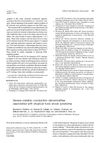March 2024 in “Biomedicines” Mesenchymal stem cells show promise for effective skin repair and regeneration.
 February 2024 in “World journal of stem cells”
February 2024 in “World journal of stem cells” Adipose-derived stem cells can help repair and improve eye tissues and appearance.
 July 2023 in “JAAD International”
July 2023 in “JAAD International” Two drugs, finasteride and minoxidil, are approved for hair loss treatment, but new therapies are being developed.

Thermal spring waters and their microbes could be good for skin health and treating some skin conditions in skincare products.
June 2020 in “Comparative medicine” NSG mice had the most mites, and genetic factors affect immune response and susceptibility.
June 2020 in “Journal of Investigative Dermatology” The symposium highlighted the importance of genetics in understanding and treating complex skin diseases.
January 2019 in “Springer eBooks” Combination therapies might work better for some vitiligo patients, but results vary.
 May 2015 in “Hair transplant forum international”
May 2015 in “Hair transplant forum international” The article concludes that PRP might help with hair loss, but more detailed research is necessary.
October 2022 in “Biomolecules” Allopregnanolone can reduce gut inflammation and normalize neurotransmitter levels after finasteride withdrawal.
May 2021 in “F1000Research” The treatment led to denser, thicker hair growth and less hair loss.
 15 citations,
January 2019 in “Mediators of inflammation”
15 citations,
January 2019 in “Mediators of inflammation” Aloe vera fermentation helps heal burns faster by reducing inflammation and changing gut bacteria.
 26 citations,
April 2019 in “Advances in wound care”
26 citations,
April 2019 in “Advances in wound care” Tannic acid helps wounds heal faster in rats by activating certain cell signals and reducing inflammation.
 April 2021 in “HIV & AIDS Review”
April 2021 in “HIV & AIDS Review” Glycyrrhizinic acid spray showed limited effectiveness in treating anogenital warts in HIV patients with low CD4 levels.
22 citations,
January 2014 in “Journal of Interferon & Cytokine Research” Certain genetic variations in IL18 may increase the risk of alopecia areata in Koreans.
 64 citations,
January 2015 in “BioMed Research International”
64 citations,
January 2015 in “BioMed Research International” Certain growth factors can promote hair growth in mice by activating hair growth-related proteins.

research Acne
58 citations,
January 1997 in “Dermatologic Clinics” Acne significantly affects mental health and quality of life, with research suggesting hormonal and genetic factors in its development and emphasizing early treatment to prevent scarring.
 January 2017 in “Postepy Dermatologii I Alergologii”
January 2017 in “Postepy Dermatologii I Alergologii” The CRH/CRH-R1 system might be involved in causing lichen planus.
 24 citations,
January 2008 in “KARGER eBooks”
24 citations,
January 2008 in “KARGER eBooks” The document concludes that ongoing research using animal models is crucial for better understanding and treating Alopecia Areata.
 July 2019 in “Journal of the Formosan Medical Association”
July 2019 in “Journal of the Formosan Medical Association” Melatonin may help with nerve pain, a hepatitis C drug is effective but has side effects, a treatment for mouth sores works but can cause blood issues, ear reconstruction with an implant is safe, HIV transmission from mother to child in Taiwan is now 0% with treatment, certain blood problems are more common in people with a tongue condition, a gene and being overweight are linked to hair loss in some women, a new technique could reduce radiation for lung nodule patients, a hepatitis treatment may lower cancer recurrence after a procedure, and adding extra screening improves tuberculosis detection in patients with lung infections.
 1 citations,
September 2021 in “Skin appendage disorders”
1 citations,
September 2021 in “Skin appendage disorders” Botulinum toxin injections can help treat common hair loss in men, but more research is needed to confirm this and understand how it works.
 10 citations,
November 2015 in “Elsevier eBooks”
10 citations,
November 2015 in “Elsevier eBooks” Modern wound dressings like hydrocolloids, alginates, and hydrogels improve healing and are cost-effective.
 6 citations,
July 1990 in “The Journal of Pediatrics”
6 citations,
July 1990 in “The Journal of Pediatrics” A boy with toxic shock syndrome had severe heart rhythm problems but recovered with treatment.
 18 citations,
June 2010 in “Current medicinal chemistry”
18 citations,
June 2010 in “Current medicinal chemistry” Treating hirsutism in women often requires a mix of medications and cosmetic methods for best results.
 June 2022 in “International journal of research and review”
June 2022 in “International journal of research and review” The article concludes that early diagnosis and lifestyle changes can prevent complications from high uric acid levels.
 17 citations,
January 2016 in “Dermatology research and practice”
17 citations,
January 2016 in “Dermatology research and practice” Emu oil may slow down skin healing but increases hair growth in burn wounds.
 7 citations,
January 2021 in “Evidence-based complementary and alternative medicine”
7 citations,
January 2021 in “Evidence-based complementary and alternative medicine” Porphyra-334 may help reduce wrinkles and promote hair growth.
 5 citations,
January 2019 in “Elsevier eBooks”
5 citations,
January 2019 in “Elsevier eBooks” Current therapies cannot fully regenerate adult skin without scars; more research is needed for scar-free healing.
 December 2016 in “British Journal of Dermatology”
December 2016 in “British Journal of Dermatology” The meeting highlighted the importance of genetic testing and multidisciplinary approaches in pediatric dermatology.
 144 citations,
November 2020 in “Frontiers in immunology”
144 citations,
November 2020 in “Frontiers in immunology” Targeting the IL-23/IL-17 pathway effectively treats several inflammatory skin diseases.
 92 citations,
January 1998 in “Dermatology”
92 citations,
January 1998 in “Dermatology” Ketoconazole shampoo improves hair growth and reduces oil similarly to minoxidil in male pattern hair loss.






















